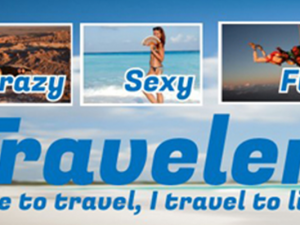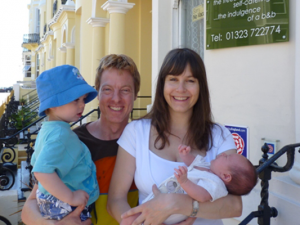
by Daniel Abrahams
This week, I was absolutely delighted when the opportunity arose to interview Gareth Williams, Co-Founder of Skyscanner.net. Not only am I an avid Skyscanner user for both business and pleasure, I have found myself becoming a self appointed brand ambassador of the site. It almost becomes a running joke amongst friendship circles that browsing Skyscanner is one of my great hobbies. Thanks to the seamless Skyscanner user experience and feature rich tool set, flight search no longer needs to be a stressful headache. Skyscanner is a great example to any tech entrepreneur in the travel space to have an unwavered focus on the product. By creating the most delightful user experience, Skyscanner has been able to dominate flight search and long may it continue.
Below are some of the best bits from my interview with Gareth:
What is Skyscanner in one sentence?
Skyscanner is one of the world’s leading travel search sites and the number one in Europe, providing instant online comparisons on millions of flights as well as car hire, hotels, holidays, and insurance.
Where is Skyscanner based?
We are based in Edinburgh, with an Asian headquarters in Singapore and another office in Beijing.
What differentiates Skyscanner from the competition?
From the beginning we had a big advantage in that we had to get to grips with the different languages and cultures of the European marketplace – our site is now available in 30 languages. That works in our favour as we move into new markets like Asia Pacific, the fastest growing travel marketplace in the world right now. We now have 35 different nationalities working at Skyscanner and that’s contributed in a big way to our success.
How have you built your brand and user base so successfully over the years?
We always believed that if we could keep building the best search engine that made travelling easier, then we would grow our users. We now have 30 million visits per month and generated $3 billion of revenue over the last year for our airline partners. Word of mouth has always been important to our brand building, particularly as we don’t spend large amounts on advertising, and social media has been a big factor in recent times.
It’s so simple to use Skyscanner. How important is user experience to your site?
User experience is massively important for us and we feel that the most important focus for user experience is on an app. We’re really proud that we’re at over 10 million app downloads, we worked out recently that someone downloads one of our apps every 5 seconds, but we’re equally proud of the ratings we get on iOS and Android. Those ratings and the customer loyalty drive repeat business.
When Skyscanner started out, what problem were you trying to solve?
I was frustrated with the difficult and tedious process of having to search multiple airline and travel agent websites to find the best flights so that I could visit my brother in France and go skiing in the Alps. I had a vision for a single website that could collect, collate and compare prices for every commercial flight in the world.
We see you are heavy on mobile with 10 million downloads to date. What motivated Skyscanner to get into the mobile arena?
We spent years concentrating on the web, but then learned that people are more inclined to use us if they have the app. Because we didn’t rush our first app out into the market, we think the extra time we spent on it has given us the edge in travel search. About a third of our 30 million monthly visits come via mobile, while in some markets in Asia the percentage of mobile visits is more than 50 per cent.
When are typically the cheapest and most expensive days to fly?
This is a difficult question to answer and depends on many things, including the route and the airline. There is no definitive answer, but we always recommend people book as early as possible.
Greatest achievement to date?
Overall, I would say it’s producing a world class web company from Edinburgh.
From the whole team at MyTravelMoney.co.uk, we want to thank Gareth for his time and wish SkyScanner all the best of luck in the future.







